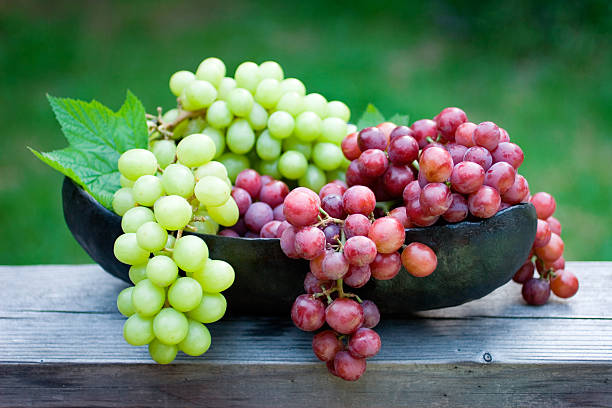The formation of organic carbon requires the combination of two factors, organic matter and various bacteria. Apart from this, it has to be a specific condition of the physical conditions of that place, oxygen is used as fuel while organic carbon is being formed, soil temperature is balanced if organic carbon is good i.e. one percent or more, soil in which the same organic carbon is low ( If (less than 0.5 %) the air temperature influences the soil, such soils quickly equilibrate to air temperature in cold weather and heat up quickly in higher temperatures. When this contrast is abundant (around 1% or more) in the soil, the soil is not quickly affected by low or high air temperature. A temperature of 15 to 35 degrees Celsius is good for the good growth and development of the grape vine, a temperature above 35 degrees slows down the growth of the grape vine, the roots are less able to absorb nutrients and water, and more than 15 degrees have the same effect on the vine, but if the same temperature is more than 15 degrees Low i.e. 12-11-10 or below 10, however, adversely affects the grape vine, very low temperatures cause the grape leaves to become hard and crooked, the edges of the leaves turn brown and the bunches stop developing during the bunch stage. The outer skin cells on the vines shrink and the vines harden, often in late pruning orchards when the vines are in the setting stage and the temperature drops drastically (below 15 degrees) the vines harden, but at the same time, if the soil is rich in organic carbon, the negative charge on the roots of the vines will be active. The work is done by the organic carbon and naturally the temperature of the roots remains higher than the temperature of the air and even in that state the roots of the grape vine remain efficient and provide energy to the stem, as a result the beads and stems on the stem do not become very hard. However, the low temperature is not the only reason for the hardness of the grape cluster, the deficiency of calcium, zinc and potassium in the flowering phase is the reason for the hardening of the cluster, if the soil is calcareous, magnesium and iron are especially lacking during this period, sometimes before the flowering stage, GA Uses greater than ten ppm almost certainly lead to zinc deficiency and scurvy, dieback, and hardiness of surviving scallions.Excessive application of calcium also causes shrillness, and continuous use of highly alkaline and high-pH spray water can also cause shrillness, possibly Spray water should be well water, bore and straight canal water is more alkaline, pH balancer should be used for higher pH, continuous use of citric acid to reduce water pH also hardens the beads, sometimes garden water usage is more or less uneven. The use of SV Ketone in the vineyard has proven to be very beneficial in reducing the occurrence of stiffness, due to any cause, its natural amino acid compounds, natural gibberellins and natural cytokinins work very well in the vineyard, protecting the bunches from hardening after bunch setting. After spraying SV Ketone, the bunches remain soft and crisp for a very short time. Applying one liter per acre of soil in very cold climates usually protects the plant from hardening.
author-
Mr. Subhash Chandra Karale Sir
Director, SV Agro Solutions
